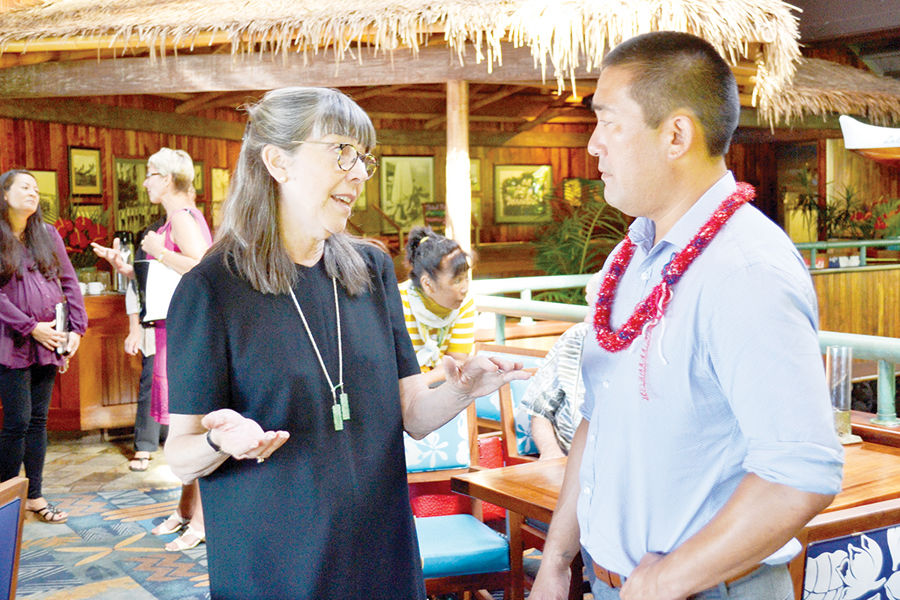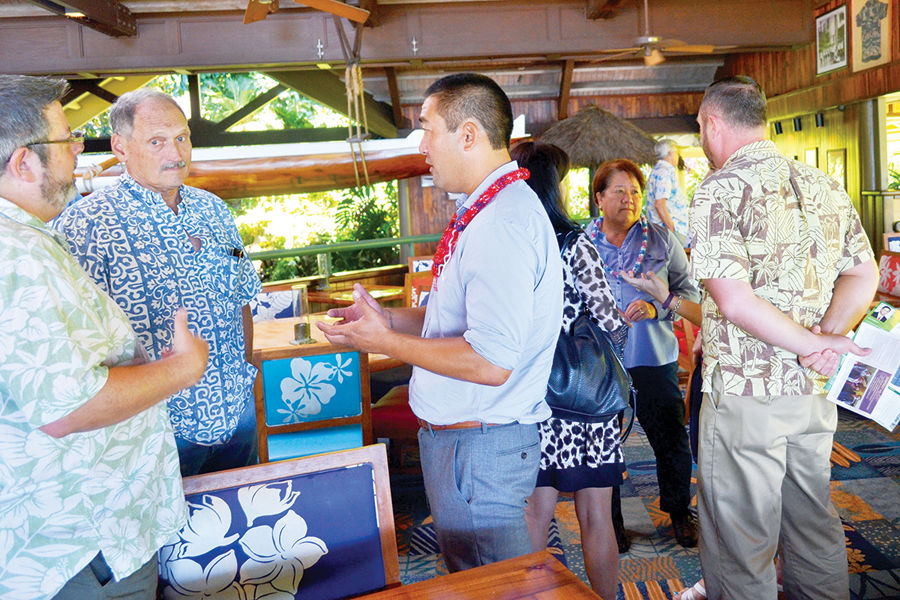LIHUE — A Kauai legislator said the majority of the Hawaii Senate identified three major areas affecting the state in the recent legislative session. The next step was finding funds for homelessness and housing, education, and health service. They managed
LIHUE — A Kauai legislator said the majority of the Hawaii Senate identified three major areas affecting the state in the recent legislative session.
The next step was finding funds for homelessness and housing, education, and health service.
They managed to do it.
“How can we best leverage the money that we have and make it pay back in the greatest possible way?” said Ron Kouchi, Kauai senator.
The Senate president with Reps. Dee Morikawa (D-16), Derek Kawakami (D-14), and James Tokioka (D-15) reflected on what they called a successful legislative session in front of about 65 people at Duke’s Canoe Club at a meeting of the Lihue Business Association.
Kouchi said the Kauai delegates secured almost $19 million for the County of Kauai — with a major portion of that money appropriated for affordable housing on the Westside.
“We have not funded as much money for homelessness and affordable housing as this past Legislature did,” Kouchi said. “ I’m happy to report that we gave $13 million to the County of Kauai for Lima Ola.”
Kouchi said the county originally asked for $5 million for the development of the 400-household residential community on 75 acres in Eleele.
“That’s going to help get that project up probably 10-15 years earlier than anticipated because we just started planning that six years ago,” Morikawa said.
She said the state allocated funds for highway improvements in the same area to ensure safer routes to school and improved pedestrian safety.
The Legislature provided $12 million to help the homeless get outreach services, shelter and eventually, permanent housing.
Dealing with education, Kawakami commended the Kauai delegates for meeting with school officials on a one-on-one basis.
“Often times, the principal’s top priorities and the teachers’ top priorities are not necessarily the top priorities for the (Department of Education),” he said. “We generally listen to people who have their boots to the ground.”
Kawakami said one concern for school officials was information technology infrastructure.
“We were able to appropriate some funds in the budget for some IT infrastructure improvements,” he said. “As our kids move into the new technology world, they’re able to keep up with the devices and the bandwidth it requires.”
Kouchi said $5 million was appropriated in the budget to ensure all 15 public schools will have sufficient bandwidth connectivity.
“Our next mission is to start to get the devices for our students,” he said. “That’s going to be a topic of conversation.”
With regards to health services in rural areas, Kouchi said legislators put enough funding in the budget this year for Mahelona Medical Center and KVMH.
“What is most important to me is the emergency room facilities both at KVMH and Mahelona hospital,” Kouchi said. “In the case of heart attack and stroke, second and minutes matter as to what kind of quality of life you have in the health crises that you’re faced with.”
Tokioka was able to appropriate $1.7 million for fall prevention and early detection services for the elderly.
Additionally, long-term care facilities will be getting back more money from Medicaid reimbursements for fiscal year 2016-2017, Morikawa said.
“That’s a big accomplishment for us,” she said. “We’ve been trying to get that back before it dropped off the budget in 2009, and we finally got it back this year.”




